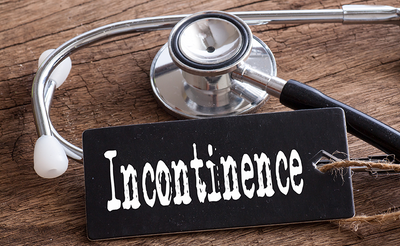Urinary Incontinence is a loss of bladder control where, a person cannot prevent urine from leaking out. It is caused due to different reasons but at times, it can be a temporary problem caused due to an infection or other temporary issue. In some cases, it leaves negative changes in the muscles around the bladder and thereby the problem is retained.
How to test for Urinary Incontinence?
In order to manage and cope with urinary incontinence, it is important to determine the type. Quite often, the symptoms can help with the process of urinary incontinence test. Here are a few things that act as enablers to test for incontinence for the doctors or the healthcare providers –
When did your symptoms start, and how severe are they?
Are your symptoms continuous or occasional?
How often do you need to urinate?
When do you leak urine?
Do you leak when you cough, laugh or sneeze?
Do you have trouble emptying your bladder?
Have you noticed blood in your urine?
Do you have any pain or burning sensation when you urinate?
They will ask questions about other things that could be causing Urinary Incontinence, such as –
Do you smoke?
How often do you drink alcohol and caffeinated beverages?
How often do you eat spicy, sugary, or acidic foods?
Do you take any medications?
What other medical conditions do you have?
The doctor or the healthcare provider will conduct a physical exam, or a pelvic exam for women and a prostate exam for men.
Diagnostic Tests for Urinary Incontinence
Diagnostic test for urinary incontinence may include –
Maintenance of a bladder diary-
You might be asked to track and maintain a diary to have collated information that includes the time, approximate quantity, symptoms experienced, and frequency of visits over a period of a few days. You might even need to put down your daily food and water intake.
Urinalysis
Checking your urine for infections, blood or any other kinds of abnormality. If they find any problem, you might be referred to another doctor for further tests and even be asked to use adult diapers that come in various sizes like XL & XXL as per the size that fits you perfectly.
Stress test
You might just be put under stress like asked to cough or laugh or jump or simply anything that can help the doctor watch for any loss of urine. After a thorough analysis of one’s case intensity, the doctor might suggest further tests or ask you to use adult diapers that are used by people suffering from Urinary Incontinence, from women undergoing pregnancy to other similar cases including people in their old age.
Ultrasound
This will help in measuring how much urine is left in your bladder just after visiting the washroom. Often, people are asked to use adult diapers that are available for those in their old age and others suffering from Urinary Incontinence or suggest further tests if required. While the above exams are the maximum testing people usually need, considering your case, your urinary incontinence diagnosis might require a little more tests for the doctors to be absolutely certain. Your doctor may refer you to a urologist, urogynecologist or a geriatrician for special tests such as –
Urodynamic testing
A catheter is inserted in the urethra to fill the bladder with water and the pressure in the bladder is recorded to help measure its strength as it fills and you urinate. In order to manage the problem, one can try using adult diapers that are perfect for people in their old age or others suffering from bladder control loss.
Cystoscopy
The doctor inserts a thin tube with a lens through the urethra into the bladder to get a good look for any abnormalities in the urinary tract. Post this, if the doctor finds any abnormalities they’ll let you know about treatments for the same and might ask you to use adult diapers that come in all sizes such as XL & XXL.
Pelvic ultrasound
One’s urinary tract or genitals are checked for abnormalities with the ultrasound. The doctor will then let you know the further action to be taken to manage urine leakage or you could even use adult diapers that are available in various sizes like XL & XXL.
Here’s Mr. Saini recounting his experience with incontinence, “I am a 40-year-old male from Indore. My bladder issues started a few years ago when I had contracted a urinary tract infection and a few months later, I learned about transient incontinence from my doctor. I was later introduced to intermittent self-catheterisation as a test when the problem persisted and grew. At first, I was frightened to use it but a little patience and time helped me relax and come up with a much friendlier way to manage the incontinence, which is using adult diapers in the XXL or XL size which fits me well and is comfortable to wear as well.”





